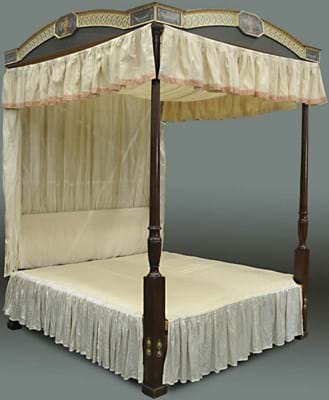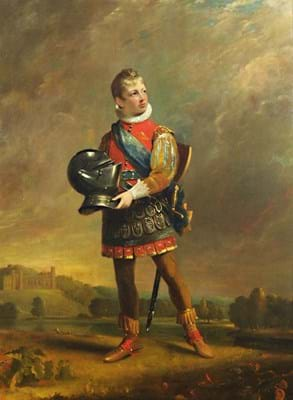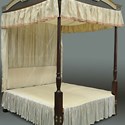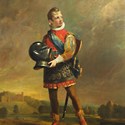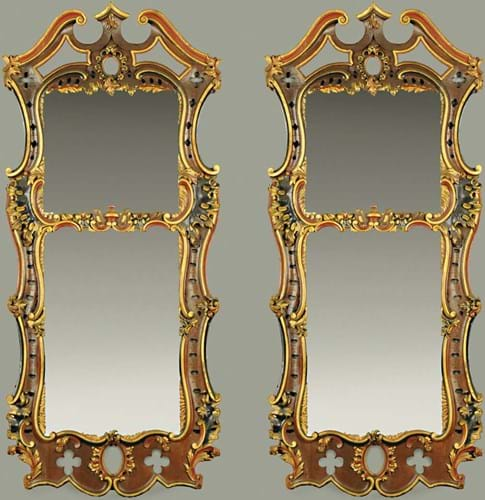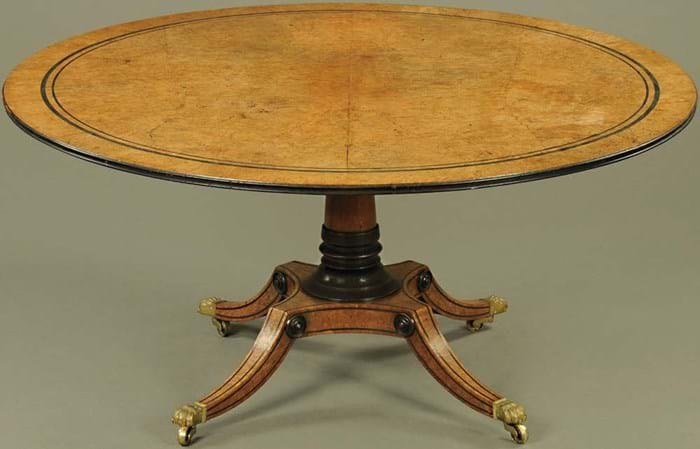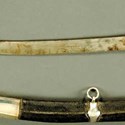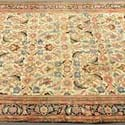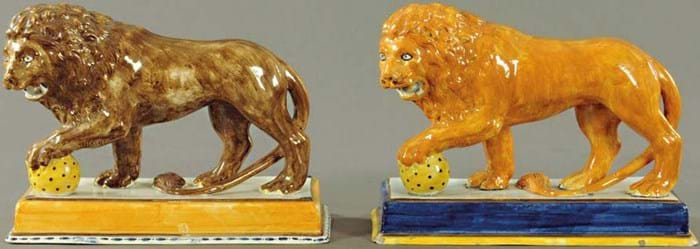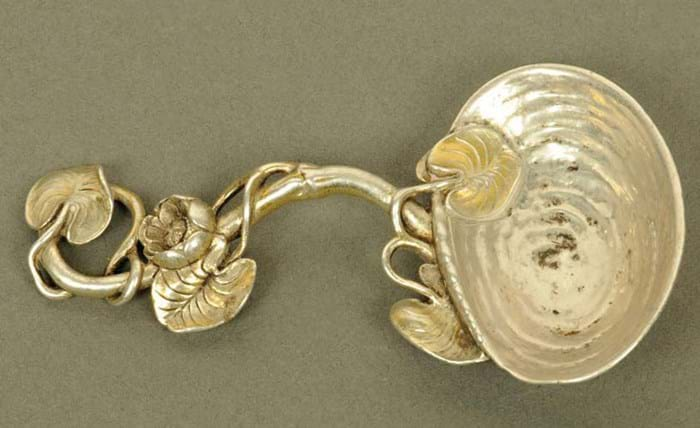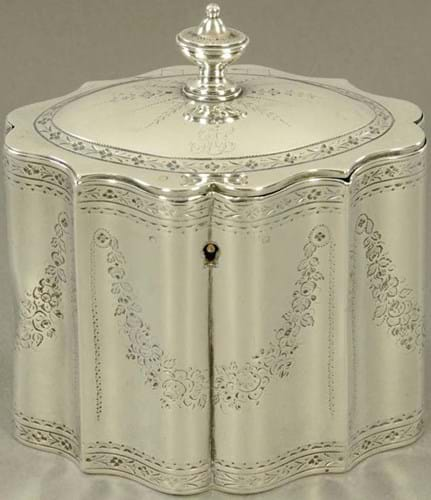The twin attractions of contents from an ancient country seat and a specialist collection attracted more than 1500 registered bidders from round the world to the first four-day sale to be held by Mitchells (22% buyer’s premium).
Greystoke Castle near Penrith was owned by the Howard family, Dukes of Norfolk, for six centuries.
Recently sold by a private owner, it had survived the depredations of the civil war and life as a POW camp during the Second World War, to the extent that 500 items were on offer at the November 30-December 3 sale in Cockermouth.
Some of the best pieces from the property, including a £15,000 ‘Mary Queen of Scots’ needlework bible cover and a £25,000 set of 15th century oak panels, had already been sold at Mitchells over the past few months but some rich pickings remained.
Family portraits
These included family portraits such as an oil of Charles Howard, the 11th Duke signed and dated [George] Romney Pinx, AD 1777 which sold within estimate to a local private buyer at £16,000.
More of a surprise was an anachronistic 19th century school oil of the Renaissance poet Sir Henry Howard (1517-46), Earl of Surrey.
The son of the 3rd Duke, he was a soldier and courtier and credited with being a father of the English sonnet and the first Englishman to publish blank verse.
But he was also famously hotheaded, violent and arrogant and went to the executioner’s block after Henry VIII accused him of treason.
The idealised, 6ft 6in x 4ft 10in (1.98 x 1.46m) canvas was estimated at £2500-3500 but sold at £17,000.
Surprises emerged, too, among the Greystoke furniture.
One was unwelcome: an impressive pair of mid 18th century rococo carved, painted and parcel gilt wood pier glasses. In good condition commensurate with age, they looked a bargain when, against hopes of £15,000-20,000, they sold at £7000.
More positive was the response to a Regency breakfast table in pollard oak with parcel ebonised veneers.
The 4ft 11in (1.5m) diameter table had some minor condition problems, and an even fading from having stood in a bay window at the castle for years. But it was in original condition and, against a £1200-£1500 estimate, went to the UK trade at £20,000.
A 19th century Gillows of Lancaster mahogany tester bed had a canopy painted with classical designs and (later) decorative drapes. Measuring 8ft 7in x 5ft 10in x 6ft 7in (2.62 x 1.79 x 2m) and in good condition, it sold at £7200 against a £1500-2000 estimate.
Treasures could be found hanging on the castle walls and on its floors.
A c.1800 Egyptian cavalry sabre, with horn grip and white metal hilt, pitched at £1500-2000 sold online at £5500 and a Heriz carpet quintupled expectations.
The 18ft 2in x 13ft 9in (5.55 x 4.19m) carpet with cream field and floriate designs had some patches of wear and stitched repairs but took £12,000.
Different sources
Other vendors enjoyed similar surprises – particularly one who consigned two early 19th century Staffordshire lions decorated in Pratt-type ochre, blue and yellow colours.
The 13in (33cm) long beasts (the same model but not a pair) appeared to have been dropped at some point with both broken and restuck. Nevertheless, an astute Mitchells staffer rescued them from a general sale and, against a £50-100 estimate, they sold at £2000.
Spoons targeted
Contributing nearly £48,000 to the sale’s overall £550,000 total were nearly 200 silver caddy spoons and decanter labels and 45 tea caddies collected over the years by a retired solicitor in his historic farmhouse near Kendal.
The spoons were a particular target of UK dealers. They were often offered in multi-lots, such as a group of 23 Birmingham 1804-16 examples in a wide range of designs all by Cocks & Betteridge. This group sold online to a dealer just shy of top estimate at £1400.
The best-selling single spoon, another UK trade buy, was a lily pad and pond pattern spoon by Francis Higgins II, London 1857. It had lost much of its original gilding but marks were crisp and, against a £70-90 guide, went at £800.
The decanter labels attracted US interest including the top-seller, a George III star design label possibly by Susannah Barker. It was in crisp condition and went to the States at more than five times the top estimate, selling at £440.
The UK trade dominated the top end of the sales of tea caddies in various media. Top-seller was a 4¾in (12cm) tall George III silver tea caddy by William Plummer. Of shaped oval outline, with urn finial and engraved with floral swags, it had a couple of small dents and the lid did not fit flush but it more than quadrupled top hopes at £1700.
Going at 10 times the mid-estimate was a 6¼in (16cm) tall, early George III figured mahogany serpentine-fronted caddy, with ormolu swan neck handle and four-piece brass fitments to the single drawer. It took £1350.
The best of the tortoiseshell caddies was a George III oval example with ivory mounts and in first class condition.
Standing 5in (13cm) tall, with ball finial and reeded sides, it doubled top hopes at £1200.


